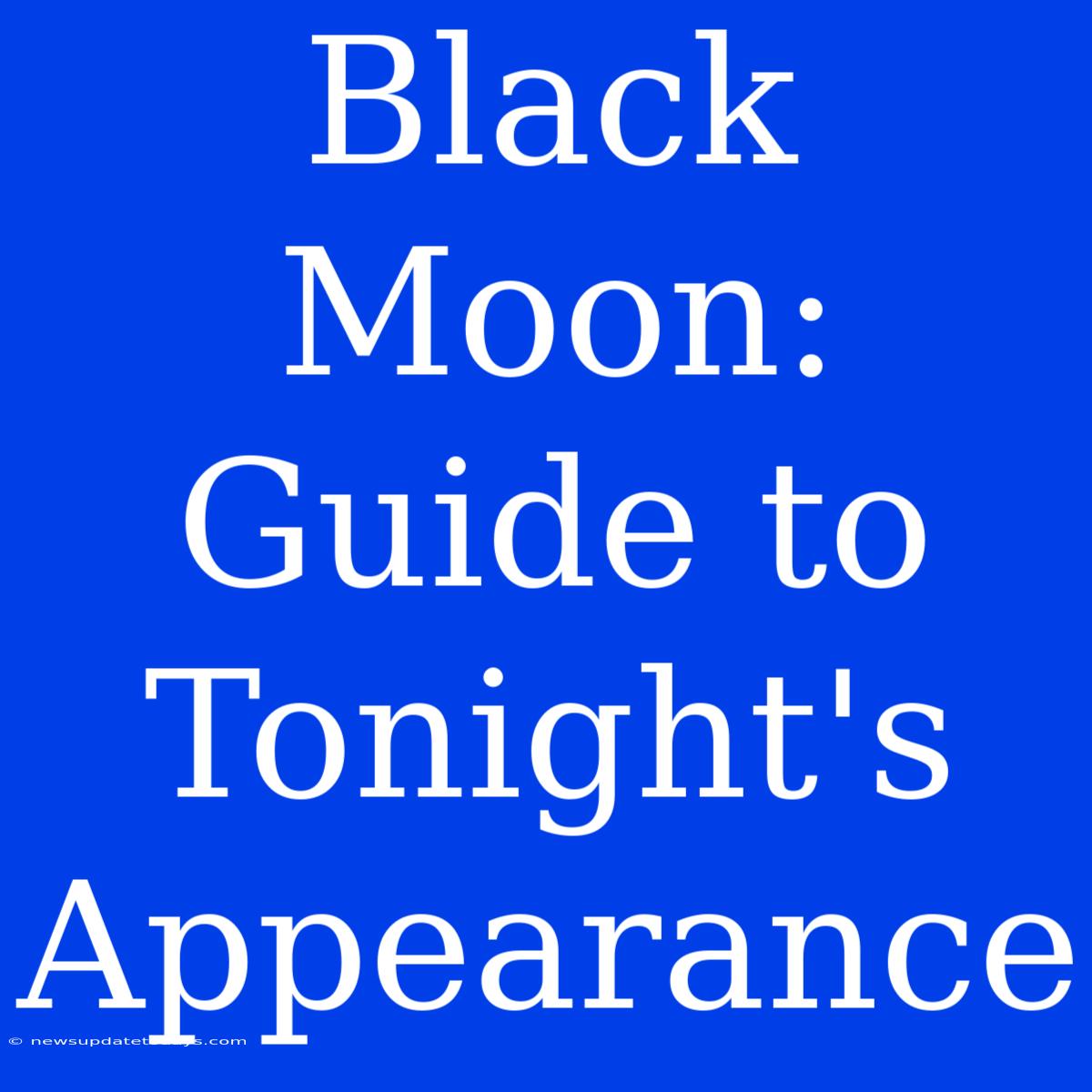Black Moon: Your Guide to Tonight's Celestial Event
Tonight's sky holds a rare treat: a Black Moon. But what exactly is a Black Moon, and what can we expect to see? This guide will illuminate this fascinating astronomical event, answering your burning questions and preparing you for tonight's celestial show.
What is a Black Moon?
Unlike a Blue Moon, which is the second full moon in a calendar month, a Black Moon is the second new moon in a calendar month. Because new moons are essentially invisible to the naked eye (as they're between the Earth and the Sun), the "blackness" refers to the absence of a visible moon in the night sky. This makes it a much rarer event than a Blue Moon.
Understanding the Lunar Cycle
To grasp the Black Moon phenomenon, we need to understand the lunar cycle. The moon orbits the Earth, and the phases we see are determined by its position relative to the Sun and Earth. A new moon occurs when the moon is positioned between the Earth and the Sun, meaning the sunlit side faces away from us.
Why are Black Moons rare?
The rarity of a Black Moon stems from the lunar cycle's approximate 29.5-day length. This means that a calendar month (typically 30 or 31 days) usually only contains one new moon. For a Black Moon to occur, the first new moon must fall very early in the month, leaving enough time for a second new moon to appear before the month ends.
What to expect tonight:
While you won't see a dark moon in the sky tonight (as it will be invisible), the event still holds significance. It's a great opportunity to:
- Stargaze: The absence of moonlight will provide exceptionally dark skies, perfect for observing fainter stars and constellations.
- Reflect: Many associate new moons with new beginnings and introspection. Take some time for quiet contemplation under the starlit sky.
- Photography: With the absence of moon glare, this is an ideal night for astrophotography, especially for capturing deep-sky objects.
Beyond the Basics:
- Regional Variations: The timing of the Black Moon might vary slightly depending on your location. Check local astronomy resources for precise times.
- Spiritual Significance: Different cultures and belief systems associate various meanings with the new moon, including renewal, intention-setting, and spiritual cleansing.
- Future Black Moons: While infrequent, Black Moons are not incredibly rare. Keep an eye out for future occurrences by consulting astronomical calendars.
In conclusion, tonight's Black Moon is a unique astronomical event, offering a chance for both scientific observation and personal reflection. While you won't see a black disc in the sky, the darker night skies provide the perfect backdrop for stargazing, photography, and quiet contemplation. Enjoy the show!

